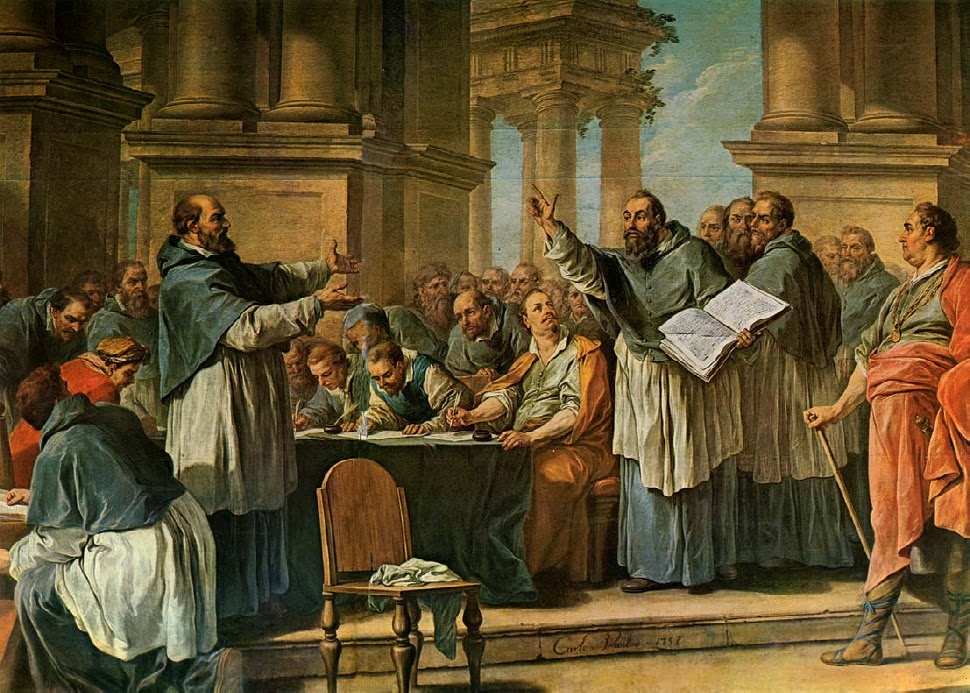Felicianus Of Musti on:
[Wikipedia]
[Google]
[Amazon]

 Felicianus of Musti (also known as Felician or Felixianus) was a bishop of
Felicianus of Musti (also known as Felician or Felixianus) was a bishop of

 Felicianus of Musti (also known as Felician or Felixianus) was a bishop of
Felicianus of Musti (also known as Felician or Felixianus) was a bishop of Musti in Numidia
Musti in Numidia, also called ''Musti Numidiae'', was an ancient city and bishop jurisdiction (bishopric), and is presently a Catholic titular see,(bishop's government see of a former government under a church's responsibility, also known as a dea ...
, Roman North Africa
Africa Proconsularis was a Roman province on the northern African coast that was established in 146 BC following the defeat of Carthage in the Third Punic War. It roughly comprised the territory of present-day Tunisia, the northeast of Algeria, ...
, involved in the Donatist controversy of the 4th century. He is known to history through the writings of Augustine
Augustine of Hippo ( , ; la, Aurelius Augustinus Hipponensis; 13 November 354 – 28 August 430), also known as Saint Augustine, was a theologian and philosopher of Berbers, Berber origin and the bishop of Hippo Regius in Numidia (Roman pr ...
of Hippo Regius
Hippo Regius (also known as Hippo or Hippone) is the ancient name of the modern city of Annaba, Algeria. It historically served as an important city for the Phoenicians, Berbers, Romans, and Vandals. Hippo was the capital city of the Vandal King ...
.
Biography
Felicianus was a member of the Donatists, anexcommunicate
Excommunication is an institutional act of religious censure used to end or at least regulate the communion of a member of a congregation with other members of the religious institution who are in normal communion with each other. The purpose ...
d movement which was critical of the Roman Catholic Church
The Catholic Church, also known as the Roman Catholic Church, is the largest Christian church, with 1.3 billion baptized Catholics worldwide . It is among the world's oldest and largest international institutions, and has played a ...
following the effects of the edict of Milan
The Edict of Milan ( la, Edictum Mediolanense; el, Διάταγμα τῶν Μεδιολάνων, ''Diatagma tōn Mediolanōn'') was the February 313 AD agreement to treat Christians benevolently within the Roman Empire. Frend, W. H. C. ( ...
, when Christianity
Christianity is an Abrahamic monotheistic religion based on the life and teachings of Jesus of Nazareth. It is the world's largest and most widespread religion with roughly 2.38 billion followers representing one-third of the global pop ...
was becoming closely aligned with the Roman government. Felicianus joined and became a leader within a breakaway group of Donatists called the Maximianists, who took a more puritanic line than the Donatists.
According to some Catholic sources, the Donatists tried unsuccessfully to remove Felicianus from his see
See or SEE may refer to:
* Sight - seeing
Arts, entertainment, and media
* Music:
** ''See'' (album), studio album by rock band The Rascals
*** "See", song by The Rascals, on the album ''See''
** "See" (Tycho song), song by Tycho
* Television
* ...
, and then used the imperial law courts to compel him to return. Whether this is true or Felicianus was just uncomfortable with the extremism of Maximianist theology is unknown, but Felicianus and another Maximianist leader, Praetextatus of Assur
Aššur (; Sumerian: AN.ŠAR2KI, Assyrian cuneiform: ''Aš-šurKI'', "City of God Aššur"; syr, ܐܫܘܪ ''Āšūr''; Old Persian ''Aθur'', fa, آشور: ''Āšūr''; he, אַשּׁוּר, ', ar, اشور), also known as Ashur and Qal'a ...
, did return to the Donatist party with their respective congregations. None were re-baptised, which was claimed by their opponents as hypocrisy.
Re-baptism of the lapsed was a core belief of the Donatists. Augustine wrote a strenuous condemnation of Felicianus of Musti in one of his letters and singled out Felicianus as an example of inconsistency in the Donatist movement. (Letter 108). The return of Felicianus was a pivotal moment in the demise of the Maximianist movement and the return of many congregations to the Donatists. It was also one of three components to Augustine's attack on the Donatists.
References
{{Catholic Church footer 4th-century births 4th-century bishops in Roman North Africa Ancient Christians involved in controversies Numidia (Roman provinces) Schisms in Christianity Year of birth unknown Year of death missing